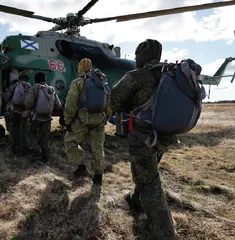Russia and the West: From Dialogue to Confrontation
作者: Zhang Hong

Year 2021 and onward has seen the rivalry growing ever more acute between Russia and the West, centering on the relationship between NATO and Ukraine. In February 2022 as Russia launched “a special military operation” in Ukraine, the Russia-Ukraine tension intensified. Western countries thus imposed overall economic sanctions and diplomatic isolation on Russia, pushing Russia’s relations with the West take a confrontational turn.
THE WEST DISMISSES RUSSIA’S CONCERNS
Over the past three decades since the end of the Cold War, Russia has taken as one of its diplomatic priorities improving relations with the West for most of the time, and has always maintained great strategic patience with it. Although western countries support Russia to join the G7 and NATO’s Partnership for Peace Programme, they have not genuinely accepted Russia. Regarding it as one major security threat, the West persists in eating away at Russia’s strategic space.
I. The West refuses to integrate Russia into its security system
Throughout the development of Russia-NATO relations after the Cold War, the West has always just aimed to ensure its security relations with Russia stay on track. Although NATO admitted Russia into its Partnership for Peace Programme and established the NATO-Russia Council, it hasn’t thought in earnest about letting Russia become its full member. Moreover, it integrates former Warsaw Pact members into its political economic and security system, and even endeavors to embrace some post-Soviet states. The West’s disregard to Russia’s integration desire, compounded by the eastward expansion of both NATO and EU, has pushed Russia further away from it. Moscow has become more and more marginalized from Brussels.
II. The West ignores Russia’s efforts to join the western economic and diplomatic system
Russia and the EU are geographically close to each other and have maintained relatively close economic and cultural ties. Russia attaches great importance to its political and economic relations with EU countries, which partly defines Russia-West relations after the Cold War. However, with the eastward expansion of the EU, the cooperation between the two sides began to be disrupted by some eastern European countries on the grounds of security and human rights issues. In 2006, Poland voted down the EU-Russia negotiations to launch new partnership and cooperation agreement. Since the Ukraine crisis, the EU and the U.S. imposed several rounds of sanctions on Russia, covering financial, military, oil and other fields. In February 2022, after the escalation of the Russia-Ukraine conflict, the EU upgraded its sanctions against Russia, including freezing the assets of the Russian Central Bank and major commercial banks in the EU, disconnecting major Russian banks from the SWIFT System, and closing airspace to Russian airlines.
III. The U.S. blocks diplomatic talks between Russia and Europe
Entering the 21st century, Russia has almost abandoned the idea of integration with the West. Instead, it sought to maintain dialogue and cooperation. However, such cooperation hasn’t gone well due to the obstructions of the U.S.. In February 2014, the U.S. backed pro-West parties in Ukraine to escalate the political crisis and topple the pro-Russian government. After the Crimea Crisis, western countries imposed a raft of economic sanctions and diplomatic isolation on Russia, including expelling it from the G8 and suspending its rights in European Commission. Russia’s newly achieved detente with the EU has again been undermined by American obstruction. At this point, Putin became disillusioned with developing relations with the West, and Russia ended up with a complete failure in its efforts to embrace the West. He realized that without a strong hand, it will be hard to change Russia’s marginalized status in the future European security and global geopolitics landscape, much less in the global economy. Russian Foreign Minister Sergei Lavrov said resignedly that the conversation on Ukraine between him and his British counterparts turned out to be the one “between the dumb and the deaf”.
THE WEST UNDERESTIMATES RUSSIA’S MIGHT AND WILL TO STRIKE BACK STRATEGICALLY
The end of the Cold War saw the international security environment improve significantly. With the collapse of the Soviet Union and the Warsaw Pact, Europe headed back to dialogue and cooperation. However, the West has chosen to exclude Russia from the security, diplomatic, and regional economic integration system, more than that, in its denial of Russia’s opposition, it has expanded NATO membership and improved relations with Ukraine and Georgia by virtually granting them membership-to-be status. All those moves underestimate Russia’s might and will for strategic counter-strike.
I. Dismiss Russia’s attempts to build European security mechanism
With the option of joining NATO off the table, Russia turns to seek cooperative relations with it in the face of its continuous eastward expansion. Russia sees its negotiations with NATO countries as its new attempts to achieve peace and stability in Europe. The dialogue between the two sides is no longer about accession or union, but about the search for a new way of coexistence. In 2010 at a foreign ministerial meeting of the Russia-NATO Council, Russian Foreign Minister Sergei Lavrov presented a draft of a new European security treaty to NATO countries, proposing to the West a unified European security mechanism. As Dmitry Medvedev put it, “it requires collective political will to achieve a future-oriented breakthrough and end nearly 20 years of uncertainty and instability”. With this proposal Moscow made an important attempt to reshape the strategic balance in Europe, by trying to create a unified and indivisible political-military security space in North America, Europe and Central Asia and thus changing the NATO-led European security framework. However, the West is quite aloof to the Russian security initiative.